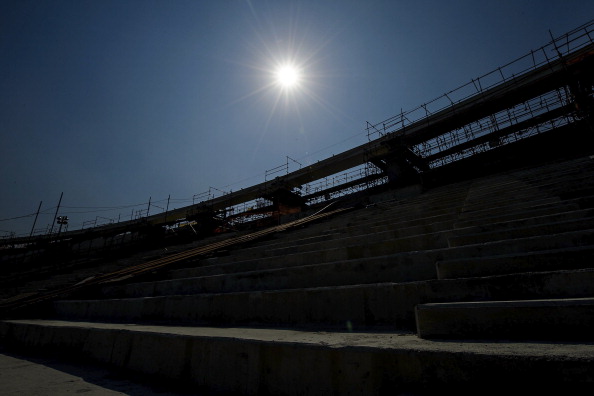By Andrew Warshaw
November 15 – The international players’ union FIFPro has raised concerns over the decision to stage certain matches at the 2014 FIFA World Cup during the hottest part of the day in more tropical venues.
Several lunchtime kickoffs in cities like Natal, Recife and Salvador on the northeast coast of Brazil can expect temperatures of around 90 degrees in June.
FIFA said it consulted a range of medical specialists before announcing the schedule two months ago.
But FIFPro general secretary Theo van Seggelen (pictured below) says his organisation, which represents 60,000 players across the globe, is worried.
“It’s an issue for us and a serious one,” he said.
“It’s our duty to do that to protect the game and protect the players.
“It would be unrealistic to say we would not play, that’s going too far.
“But we would like to know why it seems not to be a problem.”
The Dutchman told Reuters it was time the players’ views are taken into consideration.

“I know that it is sometimes difficult for football organisers but the time has passed when the players accept everything, that is finished,” he explained.
“I am 100 per cent convinced the role of FIFPro, which is already important, will be even more important in the near future.
“The players have been denied [a voice] for too long by the governing bodies.
“We realise World Cups are a real business but of course it cannot be that business is more important than the health of the players.
“I must say we have a very good relationship with FIFA when it comes to the health of the players.
“FIFA said, and I believe that, they have done some research and really understand our concerns but we think our concerns are a little bit bigger than the concerns of FIFA so we will discuss this at our next board meeting and see what we can do.
“It is not only a matter of the health of the players but is also to do with the quality of the game.
“The World Cup has to be played in the most ideal circumstances.”
Van Seggelen acknowledged FIFPro’s voice would probably count for little at this stage in the proceedings.
“I’m realistic; they have probably already signed the contracts,” he admitted.
“But we must at least do our job.”
Contact the writer of this story at zib.l1745329457labto1745329457ofdlr1745329457owedi1745329457sni@w1745329457ahsra1745329457w.wer1745329457dna1745329457

